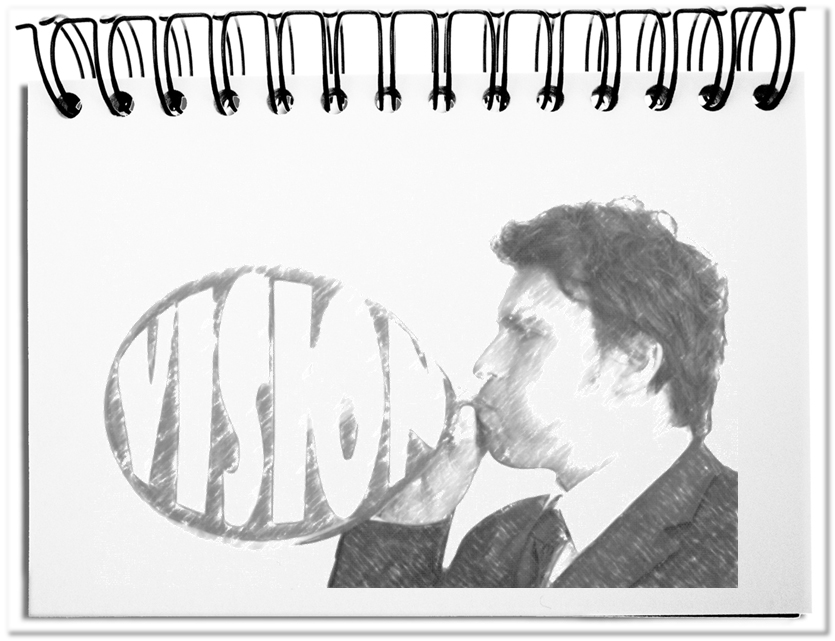The answer to Why is not an easy thing, because it leads to different results due to the different perspectives. With the development of a new product, various aspects of a solution must be questioned. Imagine an app for your smartphone that generates new ideas for your business based on the own online activities. The freemium version offers one idea per day. The paid version has additional features and collects between 0.1 $ and 5 $ for each additionally retrieved idea depending on the contract. Why should you invest money in the development of this app? Why do you need certain functions? Why should customers subscribe to the paid version? To assess the viability of the draft, a set of perspectives can be used. This provides more comprehensive insights into the Why.
In the following, several perspectives are used to understand “Why” the described app makes sense. In addition, there are still “infinite” more other aspects that may be relevant. Let’s look at the draft out of some basic perspectives.
- Customer Perspective
Customers love Freemium, because they do not have to commit to anything and can use for free more or less of the benefits of the offer. One idea per day adds up to 365 free ideas that allow a real assessment of the benefits. The consideration of the personal attitudes delivers results, which are worth knowing for everybody. Of course, the professional wants to be able to get more needs-oriented ideas. Flexible payment models serve these various needs. If one of the ideas comes to fruition, then the subscription is financed for a long time. - Contentual perspective
The challenges are the topics and the approach to avoid the repetition of ideas. In the freemium version, the Internet activities are evaluated and condensed to one new idea per day. In the professional environment, more settings are needed to align the target area to a current task. Other features are available, such as tracing previous ideas. Evaluations have shown that ideas can be generated without limits. - Social perspective
An important task will be the dispelling of the concerns of individual users, who feel being observed through assessing their Internet activity. They overlook the fact that these traces persist in the net in any case and that they get for the first time the opportunity to use these traces for themselves. The spared time, the advancement of the business and the increased reputation, which is generated by the ideas, should quickly let them be open for conviction. - Technological perspective
This cloud-based service operates based on big data that is already used by major online retailers. You get additional purchase proposals, when you buy a CD appears “Other buyers, who bought this CD …” The main difference of the app is the controllable semantic evaluation, which generates more and more ideas, and does not serve as a sales hook to buy something. The features can be set in a unique way with the special, multilingual meaning engine. The corresponding patent has already been granted. - Economical perspective
It is common to attract large user groups via freemium offers. The business case assumes that 10% of the free accounts book the paid packages subsequently. This results in revenues that bring the project into the profit zone within three years. Analysts concluded that the effect of conditioning will be driven by the usable ideas that will motivate users to stay an active member for a long time. A small, solvent group will be interested in elaborate additional offers. The critical tipping point is reached after two years. Thereafter, the main task will be to ensure availability and to continuously expand the offer. - Political perspective
So far, the introductory provisions allow a cross-border exchange of ideas. Should there be a tightening of customs regulations, then the supply can be easily nationalized, i.e. the programs are set up nationally and need therefore no longer operating across borders. There are no disturbing distortions to competition since it stimulates the business of key competitors, like consultants and creative firms. The results of the app consist of short ideas, which create comprehensive consulting services for the implementation. The use in crisis regions and authoritarian states could be difficult because the network access is not guaranteed. - Legal perspective
The data that is used consists of the data tracks that the user creates in the net. In principle this data belongs to the users. The ideas that are generated by the app are public domain and can be used free of charge by the users. It is planned to include a legal verification in a premium version. The product liability of the offers resulting from the ideas remains with the manufacturer. From a legal point of view nothing speaks against the app. - Ecological perspective
The impact on the environment is mainly determined by the operation of the data centers – air conditioning, electricity, the fuel of the emergency power generators. The actual ideas are not polluting per se. Ecologically questionable ideas are filtered out to the extent that environmental damage is minimized on a non-dogmatic level, e.g. waste of natural resources and non-recyclable waste is avoided by default. The app has a positive effect on CO2 footprint of the idea scouts, who limit their research to the net. - Own perspective
The developers have reported that they are proud having found these resourceful algorithms, since more and more ideas are needed in the future to make small businesses viable. For them, the program is a contribution to the world of work of tomorrow and after-tomorrow. They already have plans for much more extensive analysis capabilities. The positive attitude of the involved people promises long-lasting momentum for the development of new features.
Bottom line: Of course, the story is fake news. But, the example clarifies that looking at a new product out of only one perspective, e.g. the business case, is inadequate. Additionally each of the indicated perspectives has its purpose. For this reason, it is always beneficial to change your standpoint, to put on a new hat, to walk in the moccasins of others in order to get to an overall assessment. Only then, one perceives the actual potentials and is able to recognize the challenges at an early stage. In order to get better, the Why needs perspectives.


